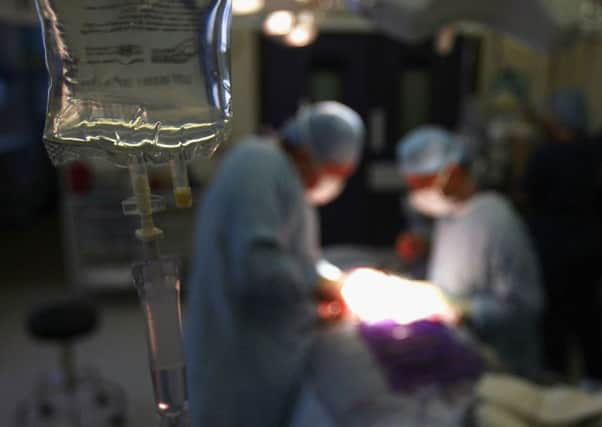Leader comment: We're losing one of the world's best health services


Professor Malcolm Macleod told MSPs that anyone who managed to make it through an interview was likely to get a job because of the lack of other applicants. And this absence of choice, he warned, was not good for patients.
Filling the gaps with temporary staff in an attempt to meet waiting time targets had resulted in “chaos” on one weekend, he said, with too many patients referred for further investigation and more complaints. Perhaps he didn’t mean it to come out this way, but Professor Macleod seemed like someone at the end of his tether when he said: “It would have been quicker if I had seen those 100 patients than it was to clean up the mess afterwards.”
Advertisement
Hide AdAdvertisement
Hide AdMost junior doctors will doubtless have gone into the NHS with high hopes of making a real difference to people’s lives. That they are choosing to go into the financial sector “because they don’t see it [medicine] as a career for someone like them”, as Professor Macleod reported, should be deeply worrying. There is nothing wrong with working in finance, it is a mainstay of our economy, after all.
However few people are fired with an altruistic passion for it in the same way as they are for curing the sick and saving lives. It suggests that the pressures on NHS staff are starting to outweigh the sense of having a vocation, rather than just a job to pay the bills.
Unfilled vacancies mean other health service staff have to work harder, adding to the reasons that are prompting some to look elsewhere, creating yet more vacancies. If the health service is to be saved, politicians need to step in to prevent this vicious circle from getting worse. Scotland’s ageing population and expensive new medical treatments have stretched NHS budgets to the limit. If the NHS cannot attract enough staff, then the pressures could become intolerable.
The Scotsman has previously suggested radical solutions for the NHS’s problems may be required.
But it should always be remembered that, despite its problems, the NHS remains one of the best health services in the world – and also one of the cheapest.
If we allow the NHS to decline further, we may come to regret it.
